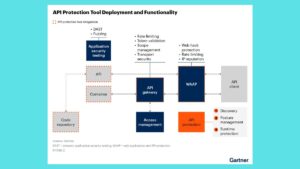HR Technologies: Transforming the Future of Human Resources

In today’s rapidly evolving business landscape, organizations are increasingly recognizing the crucial role that human resources (HR) play in achieving strategic objectives. The advent of HR technologies (HRTech) has significantly transformed the way HR departments operate, streamlining processes, enhancing employee experiences, and driving organizational success. This blog explores the various facets of HR technologies, their benefits, challenges, and the future of HRTech in the workplace.
Understanding HR Technologies
HR technologies refer to the software and tools designed to facilitate and improve HR functions. These technologies encompass a wide range of applications, including:
- Applicant Tracking Systems (ATS): Automate the recruitment process by managing job postings, tracking applications, and streamlining candidate evaluations.
- Human Resource Information Systems (HRIS): Centralize employee data, including personal information, payroll, benefits, and performance records.
- Performance Management Software: Enable continuous feedback, goal setting, and performance evaluations to support employee development and alignment with organizational objectives.
- Learning Management Systems (LMS): Provide training and development opportunities through online courses, enabling employees to enhance their skills and knowledge.
- Employee Engagement Platforms: Measure and improve employee satisfaction and engagement through surveys, feedback mechanisms, and recognition programs.
Key Benefits of HR Technologies
1. Increased Efficiency and Automation
One of the most significant advantages of HR technologies is the ability to automate repetitive and time-consuming tasks. By streamlining processes such as recruitment, onboarding, payroll, and performance management, HR professionals can focus on strategic initiatives that drive organizational growth. Automation not only saves time but also reduces human error, ensuring greater accuracy in HR operations.
2. Data-Driven Decision Making
HR technologies provide access to vast amounts of data and analytics, empowering HR leaders to make informed decisions. By analyzing employee performance, turnover rates, and engagement levels, organizations can identify trends and proactively address potential issues. Data-driven insights enable HR departments to align their strategies with business goals, ensuring that workforce management is aligned with overall organizational performance.
3. Enhanced Employee Experience
Modern HR technologies are designed with the employee experience in mind. User-friendly interfaces and mobile accessibility allow employees to access HR services easily, such as submitting leave requests, updating personal information, and participating in training programs. Engaging employees through intuitive platforms fosters a positive workplace culture and increases employee satisfaction.
4. Improved Recruitment and Talent Acquisition
HR technologies have revolutionized the recruitment process, making it more efficient and effective. Applicant Tracking Systems (ATS) streamline candidate sourcing, screening, and selection, enabling HR teams to identify top talent quickly. Additionally, AI-driven recruitment tools can analyze resumes and match candidates with job requirements, reducing bias and improving diversity in hiring.
5. Seamless Communication and Collaboration
HR technologies facilitate better communication and collaboration among employees and teams. Platforms that support employee engagement, feedback, and recognition create a culture of transparency and inclusivity. Effective communication tools enable remote and hybrid teams to stay connected, fostering collaboration regardless of geographical location.
Current Trends in HR Technologies
1. Artificial Intelligence (AI) and Machine Learning
AI and machine learning are becoming integral to HR technologies, enabling organizations to enhance various HR functions. AI-powered chatbots can provide immediate responses to employee queries, while machine learning algorithms can analyze employee data to predict turnover and identify high-potential employees.
2. Remote Work and Virtual Solutions
The rise of remote work has accelerated the need for HR technologies that support virtual collaboration. Tools that facilitate online training, performance monitoring, and team communication have become essential for managing distributed teams effectively.
3. Focus on Diversity, Equity, and Inclusion (DEI)
Organizations are increasingly prioritizing DEI initiatives, and HR technologies are evolving to support these goals. Tools that promote unbiased recruitment, track diversity metrics, and facilitate employee resource groups contribute to creating inclusive workplaces.
4. Employee Well-being and Mental Health Solutions
The importance of employee well-being and mental health has gained recognition, prompting the development of HR technologies that address these issues. Platforms that provide resources for mental health support, wellness programs, and work-life balance initiatives are becoming integral to HR strategies.
5. Integrated HR Platforms
Organizations are moving towards integrated HR platforms that consolidate various HR functions into a single solution. This integration streamlines data management, enhances user experience, and improves reporting capabilities, allowing HR professionals to access all necessary information from one platform.
Challenges in Adopting HR Technologies
1. Change Management
Implementing new HR technologies can encounter resistance from employees and management alike. Organizations must invest in change management strategies to ensure smooth transitions, including training and communication plans to address concerns and foster acceptance.
2. Data Privacy and Security
As HR technologies handle sensitive employee data, ensuring data privacy and security is paramount. Organizations must comply with data protection regulations and implement robust security measures to protect against data breaches and cyber threats.
3. Integration Complexities
Integrating new HR technologies with existing systems can be challenging, especially if legacy systems are in place. Organizations must carefully evaluate their current infrastructure and ensure that new tools can seamlessly integrate without disrupting operations.
4. Cost Considerations
While HR technologies can deliver substantial benefits, the initial investment may be significant. Organizations must weigh the costs of implementation against the potential return on investment (ROI) and long-term value.
The Future of HR Technologies
The future of HR technologies is promising, with several trends set to shape the landscape:
1. Hyper-Personalization of Employee Experiences
Organizations will increasingly focus on hyper-personalization, tailoring HR services and resources to meet the unique needs of individual employees. This shift will enhance engagement and satisfaction, leading to improved retention rates.
2. Enhanced Use of Analytics
As data analytics capabilities advance, HR technologies will provide deeper insights into workforce dynamics. Predictive analytics will enable organizations to proactively address challenges, optimize talent management, and enhance employee engagement.
3. Emphasis on Continuous Learning
With the fast-paced nature of change in the workplace, continuous learning and development will become a priority. HR technologies will facilitate ongoing training and skill development, ensuring that employees remain adaptable and equipped for future challenges.
4. Remote Work Optimization
As remote work continues to be a significant aspect of the modern workforce, HR technologies will evolve to enhance the remote work experience. Solutions that support virtual collaboration, performance tracking, and employee engagement will be crucial for managing distributed teams effectively.
5. Focus on Employee Well-being
The emphasis on employee well-being will persist, with HR technologies offering solutions that promote mental health, work-life balance, and overall wellness. Organizations will invest in tools that support employee health, leading to increased productivity and job satisfaction.
Conclusion
HR technologies are transforming the way organizations manage their most valuable asset—people. By automating processes, providing data-driven insights, and enhancing employee experiences, HRTech empowers HR professionals to focus on strategic initiatives that drive organizational success.
As the HR landscape continues to evolve, organizations must embrace technological advancements to remain competitive and create a thriving workplace culture. The future of HR technologies holds immense potential for improving recruitment, employee engagement, and overall workforce management, ultimately shaping the future of work. By leveraging HR technologies, organizations can cultivate a motivated, engaged, and high-performing workforce prepared to meet the challenges of tomorrow.






